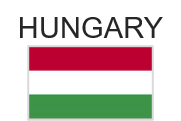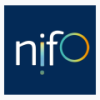
National Interoperability Framework
The National Interoperability Framework (NIF) is a set of standards, policies, and guidelines that ensure that information and communication technology (ICT) systems can communicate and share data seamlessly. It promotes the development of interoperable systems that facilitate data exchange and collaboration between different organizations and levels of government. The NIF provides a common language and a framework for ensuring that ICT solutions are compatible, secure, and reliable, which enhances the efficiency of public services and improves citizen outcomes.
Good Practices
This section provides examples at the national level in line with a selection of different thematic areas of the European Interoperability Framework (EIF). Further initiatives and good practices are available in the country’s Digital Public Administration Factsheet.
In Hungary, the Cabinet Office of the Prime Minister supervises all governmental ICT development projects and examines whether the development concerned matches the e-government policy criteria, which contain clear requirements on spreading open source solutions. The procedure obliges public bodies conducting public procurement to examine open source alternatives for the needed solution, and in case it did not choose to procure open source solutions, it has to justify why it had to choose licensed closed source solutions. In addition, for projects funded by the Public Administration and Civil Service Development Operational Programme (PADOP) it has been included as an eligibility criteria to increase the proportion of the use of open source software. The total cost of ownership (TCO) is always calculated before making decisions on the viable solutions within a project. The objective is to keep this regime for the 2021-2027 financial period's new operational programmes as well. The NISZ's National Infocommunication Service Provider, which is a 100% state-owned company under control of the Digital Hungary Agency also has an open source competence centre for supporting the open source policy. The use of open source office software (Libre Office) is ensured for the public administration, and the NISZ's Open Source Competence Centre actively participates in developing the Libre Office software package as well.
Data portability and easy data transfer between systems is ensured by the legal framework on e-government and interoperability. The E-Administration Act and its implementing decree regulate interoperability regarding all public administration actors, but also the centralised nature of central and territorial administration in Hungary, as well as the central solutions and building blocks (e.g., the new customised user interface of the Hungarian PSC portal, e-identification, e-delivery, epayment, the KKSzB technical interoperability platform, etc.) provided by the State to all public administrations help to achieve this goal. According to the E-Administration Act and the policy criteria for approving e-government-related projects and developments, the reuse of the central and regulated administration services (including the above mentioned KKSzB) as building blocks for providing e-government services is compulsory and this also fosters interoperability between public administration bodies and their services. The cross-border level data exchange, however, is mostly yet to accomplish in the next few years. The new Act on the Digital State and Digital Services will replace the E-Administration Act in the second half of 2024, and even more emphasis will be put on automated data exchange.
All projects financed by the Public Administration and Civil Service Operational Programme (PADOP) have to meet certain standards and requirements regarding user-centricity. One of the guiding documents for these projects concerning usability and user-centric design has been the Digitialisation Methodology for public administration services that is available in Hungarian on the website of the Electronic Administration Supervisory Authority and contains a chapter on user-centricity with the basic principles, international good practices, as well as key factors on user-centricity that are expected to be met by the new services introduced from the above mentioned projects. Moreover, the Cabinet Office of the Prime Minister and the 100% state-owned NISZ National Infocommunications Service Provider Ltd. have been carrying out client satisfaction surveys with questionnaires regarding several electronic services in general. The insights gained from the results of these surveys were also taken into consideration for defining further development goals and requirements. It is also important to mention that during the design phase of e-government developments, each project strives to collect the relevant insights from the public administration service providers concerned, as they are familiar with the known problems of previously existing services, and could have suggestions on how to satisfy better the known needs of the targeted audience of their services.
The newly adopted National Digital Citizen Programme 2022-2026 sets the objectives to develop user-centric services meeting the accessibility standards. The aim of the Digital Hungary Agency is to re-develop the most widely used egovernment services in a user-friendly way based on the 'mobile first' principle, with leaving no one behind, regardless of their physical or technological capabilities of users.
The compulsory reuse of central and regulated administrative services (CEAS and REAS) as building blocks for developing and providing e-government services, the KKSzB technical interoperability platform for data exchange, and the spread of use of the IaaS, PaaS or SaaS services provided by the Government Data Center ensure the common framework for interconnecting service components and infrastructure for establishing and maintaining public services. The E- administration Act and the egovernment policy criteria used by the Cabinet Office of the Prime Minister and the Digital Hungary Agency require all egovernment-related developments to use these key enablers. The Central Government Service Bus (KKSZB) is also a main platform for interconnecting loosely coupled service components.

